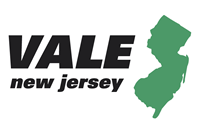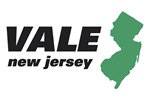|
VALE Users’ / NJ ACRL/NJLA CUS Conference
Wednesday, January 9, 2008 |
“Mission Possible: Partnering for Change”
Busch Campus Center
Rutgers University, Piscataway, NJ
Schedule of Events
Use the VALE Conference Registration Form to sign up
Registration is now closed. People who signup will be put on a waiting list and will be contacted if space opens up.
| 9:00 am – 10:00 am | International Students’ Lounge Registration / Coffee / Poster Sessions |
|||||
| 10:00 am – 11:00 am | Welcome :Conference Co-Chairs Karen Topham, NJ ACRL / NJLA CUS Section/Chapter President, and Joan Getaz VALE Update: David Pinto, VALE Excutive Committee ChairKeynote Address: Christopher J.Mackie, Mellon Foundation Topic: The Library in the Academic Enterprise: Toward a Sustainable Software Ecosystem Keynote remarks (PDF) — slides (PDF) |
|||||
| 11:15 am – 12:05 pm | Morning Breakout Sessions | |||||
| 12:15 pm – 1:15 pm | Multipurpose Room LUNCH – Sandwich buffet Lunch Table Discussions |
|||||
| 1:15 pm – 1:45 pm | International Students’ Lounge Poster Sessions Continue Lunch Table Discussions |
|||||
| 1:45 pm – 2:35 pm | First Afternoon Breakout Sessions | |||||
| 2:45 pm – 3:35 pm | Second Afternoon Breakout Sessions |
11:15 AM to 12:05 PM
a. Keynoter Follow-up
Christopher Mackie, Mellon Foundation [Open Library Systems Track]
b. Strategies for Building a 2.0 Website for VALE.org
Ann Hoang (New Jersey Institute of Technology), Kurt Wagner (William Paterson University), Denise O’Shea (Fairleigh Dickinson University), Jia Mi (The College of New Jersey) and members of the VALE Website Committee
The VALE Website committee will conduct a focus group to gather ideas and suggestions to increase the value and improve the use of VALE website. Web 2.0 provides a comprehensive array of applications (blogs, RSS, wikis, podcasts, tags, mash-ups and more) for presenting and collaborating on the web. The focus group will identify areas of improvement concentrating on the use of social networking technologies to increase usage and awareness of the VALE website. PDF
c. Faculty Deposit Services in an Institutional Repository
Rhonda J. Marker (Rutgers University)
The presentation will briefly describe the array of services offered in the Rutgers Community Repository (RUcore), including faculty collections, faculty deposit of scholarship, and departmental resources in the repository. The session will focus on promotion to faculty and the roles of library liaisons, technical developers and metadata managers. It will highlight librarian-faculty partnerships at the University, and public services-technical services collaboration within the Libraries.
d. Using the WorldCat Collection Analysis Tool
Anthony Joachim, Richard Kearney, Mark Sandford, Pamela Theus and Victoria Wagner (William Paterson University)
This session will provide an overview of the features of the tool, a pilot project undertaken by the group, and tips on use. A discussion about possible uses for VALE libraries will be offered. The session will conclude with a question and answer period.
e. Engaging Students through Interactive Elements on the Library Webpage
Paula Williams (Bergen Community College)
Today’s students need quick and engaging tools via the library webpage to learn about library services and use the available online services. Using low-cost but effective tools, the library at Bergen Community College created a number of stimulating sites. This session will present these applications and their use.
f. Information Literacy: Academic Librarians Collaborating with High School Librarians
Valerie Gouse and Mary Thorstensen (Cumberland County College)
The Presenters will share their experiences of initiating talks and building relationships with area high school librarians in order to address common issues surrounding information literacy.
g. Sharing Cataloging Resources in Academic Libraries: A Lesson from Public Library Consortia
Brigid Burke (Fairleigh Dickinson University)
Sharing catalog records among academic libraries via Z39.50 is an inexpensive way to share quality cataloging among libraries, without having to download records from OCLC. This presentation explains how academic libraries can participate in the kind of record sharing that has been done for years by public library consortia, without having a consortium arrangement.
1:45 PM to 2:35 PM
h. Open Library Systems and NJ: From Vision to Transformation [Open Library Systems Track]
Ann Hoang (New Jersey Institute of Technology), Ann Montanaro (Rutgers University) and Kurt Wagner (William Paterson University)
This panel discussion will introduce the topic of open library systems, using Evergreen, a development of the Georgia public library system PINES as its main example. They will discuss Georgia’s implementation of Evergreen in its public libraries, the team’s visit to Georgia in April 2007, and the issues that an open ILS present. The panel will discuss the feasibility of implementing a similar system in New Jersey and discuss the kinds of issues and considerations that would need to be in place, should New Jersey libraries decide to go in this direction. PDF
i. Online Information Literacy Tutorial: the First Step towards Incorporating Library Instruction into University’s Online Courses
Sharon Yang (Rider University)
Traditional library instruction must change to accommodate online courses or it will be omitted from outreach to a growing part of the student body. Creating online information literacy tutorials is a first step toward incorporating library instruction into a university’s online courses. This presentation will give an overview of current library online tutorials and explain the technologies used to create them. The presentation will demonstrate tutorials created by traditional HTML and other locally developed or commercially available programs.
j. We Can’t Do It Alone: Securing Buy-In for the Development and Expansion of a Bibliographic Instruction Program
Bill McNelis (DeVry University), Joe Louderback (DeVry University)
Starting, expanding, or re-vamping a bibliographic instruction (BI) program can be a challenge, requiring the effort of staff members throughout the academic institution. Hear how the DeVry University Library staff started their BI program, overcoming challenges by seeking collaboration with faculty and staff, and share your own BI challenges and victories in an open discussion.
k. Implementing a Technical Services Wiki in a Consortium Environment: the Case of the VALE Bibliographic Control and Metadata Committee Wiki
Cathy Weng (The College of New Jersey), Jianrong Wang (Richard Stockton College Library)
The VALE Bibliographic Control and Metadata Committee has been in search of effective and collaborative ways to communicate and to share institutional bibliographic control documentation. The Wiki was suggested to and approved by the committee for its ease of use and for its collaborative functionality. The Committee Wiki Task Force started to experiment and implement this project in summer 2007 with a study of issues such as choosing appropriate wiki software, contents guidelines, formatting, using controlled or uncontrolled tags and searching functionalities. Feedback from this session will inform the Task Force recommendations. The initiative will be considered a work in progress aimed at effective and efficient communication and collaborative sharing for the benefit of all participating institutions.
l. VALE Assessment Survey & Report: What’s Next?
Jeanne Boyle (Rutgers University), Tom Clareson and Chris Martire (PALINET Consulting Services) and members of the VALE Executive and Assessment Committees
PALINET investigators will join members of the VALE Executive and Assessment Committees to review the 2007 VALE Assessment Survey Report and a proposed plan of action
m. Beginning Your Odyssey Adventure: Implementation Basics
Eric Zino (PALINET, for VALE Resource Sharing Committee)
The Odyssey software allows libraries to send and receive electronic documents to other libraries that also use the software, being used as part of ILLiad, or as a standalone program. Tom Ceresini, Member Services Consultant at PALINET, will explain the basics of implementing Odyssey, while providing an introduction about the software, its uses, and how NJ academic libraries could benefit from its use.
n. Partnering With Publics
Karen Pifher (Peapack-Gladstone Library, Somerset County Library System), Greg Smith (Mercer County Communtiy College)
The presentation will review the similarities and differences between public and academic libraries including patrons, services and programs. The program will include a discussion of joint use libraries and ways that academic and public libraries can partner to bring better service to their patrons.
2:45 PM to 3:35 PM
o. Brainstorming the Next Generation Academic Library System [Open Library Systems Track]
Richard Sweeney (New Jersey Institute of Technology) and Taras Pavlovsky (The College of New Jersey)
This will be a brainstorming session intended to help define the kinds of functionality that should be present in any next generation library system (the kind being conceived by the Mellon Foundation). Participants will be expected to participate in this exercise by suggesting innovative functionality that does not exist in their library (system or service) or, perhaps, anywhere today. The OLS task force will listen to input from the membership on ideas for proceeding and for giving input to the Mellon Foundation.
p. Lights, Camera, Action! Pairing Basic Reading Classes with Library Research
Nancy Weiner and Kathy Malanga (William Paterson University)
What better way to motivate reluctant, hesitant readers and engage them in learning than to have their skills showcased on video? This presentation highlights a collaborative project between the library and basic reading classes, designed to expose students to fundamental research skills and enhance reading, writing, and oral presentation skills.
q. Creating Chaos in Your Instruction: Experiments in Active Learning
Caroline Geck (Kean University), Ma Lei Hsieh (Monmouth University) and Jacqui DeCosta (The College of New Jersey)
Employing active learning or constructivist techniques in the classroom can be more effective than lecture alone. How difficult is it to do in library instruction sessions? Are faculty and librarians willing to invite chaos into what typically are structured, tightly timed, information literacy sessions? Hear the experiences from three librarians who have experimented with active learning.
r. Establishing a Systemic Procedure to Register E-Journal Access: Barriers, Challenges and Opportunities
Jia Mi (The College of New Jersey) and Tracie Burns (EBSCO Information Services)
This presentation will examine subscription agent and librarian perspectives on the complex issues and challenging problems related to the e-journal registration process. Understanding the experience of librarians setting up access to e-journals serves a dialogue among responsible parties: publishers, subscription agent and librarians. Communication and partnership are the keys to establishing effective ways to maximize electronic journal access.
s. Electronic Archiving: What’s the Difference Between LOCKSS and Portico?
Representatives from Portico and LOCKSS (for the VALE Electronic Resources Committee)
Representatives from LOCKKS and Portico will describe their products and how they are currently used in academic libraries. The focus will be on how the products actually work, and what librarians can reasonably expect if they sign on to either or both services.
t. Federated Searching: An Investigation into One Stop Search Services for Libraries
Sharon Yang (Rider University)
This presentation will offer an overview of federated searching, including its technologies and implementation in academic libraries.
u. Partnerships that Can Close the Distance in the Online Environment: The Berkeley Model
Leslin Charles and Dr. Mary Slavin (Berkeley College)
How are librarians adapting traditional services to adequately address the unique needs of distance learners? We can ‘close the distance’ that exists between the librarian and the online student by collaboration with other campus departments: faculty and Academic Support Center. The Berkeley College model is successfully closing the distance in the online environment.

